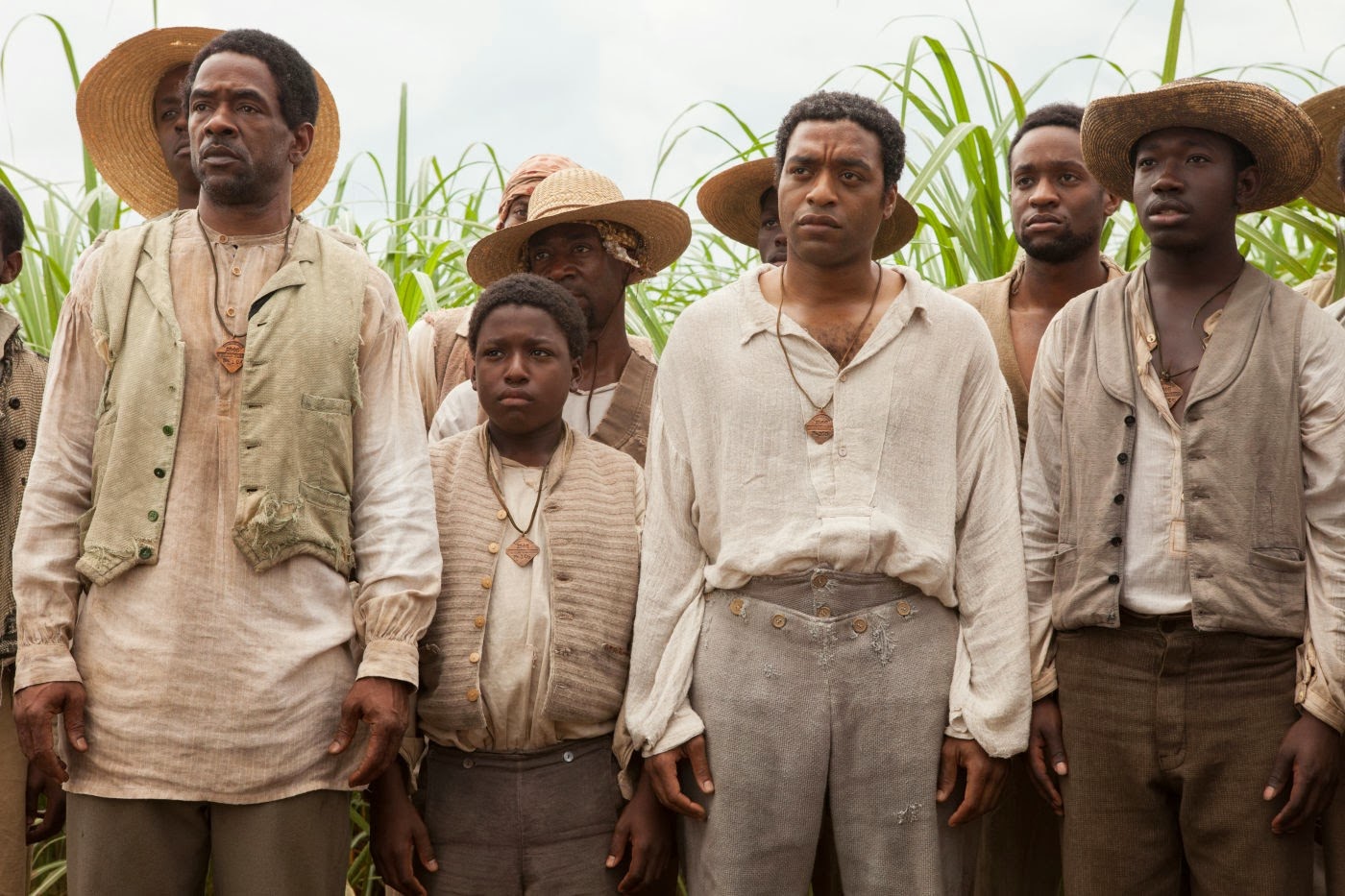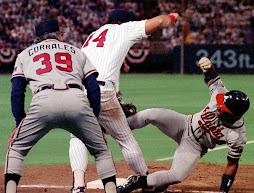American Hustle
Captain Phillips
Dallas Buyers Club
Gravity
Her
Nebraska
Philomena
12 Years a Slave
Wolf of Wall Street
Out of the nine nominations each one has a place in this sort of category. Philomena is the kind of movie you will be happy to sit through at some random moment down the road. It is an odd couple movie with a ‘heart of gold’. The academy tends to hold a spot for movies like this during the celebration of the years best. Plus you’ve got Judi Dench doing her thing which is the kind of thing that is easy to overlook but a rare commodity still in moving pictures.
Captain Phillips got a nod because it has the big movie star and the gritty director bringing a cnn headline to life in heartbreaking fashion. There are some notes that are missed but overall it is an ambitious forward thinking story to tell. The support of the academy will make it easier for other movie stars to make similar types of movies that blend hard hitting real world issues with some of the suspense and drama that audiences crave.
Nebraska represents part of the independent movement. A small scale story told in crisp detail set in the heartland of America. On top of that the movie features one of the darlings of the movie industry in Alexander Payne. Never underestimate a detail like that in an award show that is essentially a poll drawn from industry professionals. Bruce Dern gets most of the love but somehow Payne came away from a loaded year with a Picture, Director and Original nomination. Quite an accomplishment for a little movie. This is how Payne is rewarded for avoiding temptation and seeing a long gestating project through.

Her is yet another part of the independent movement. Fueled by the support of younger voters Her resonates in a different way with a new generation. The awards love for Spike Jonze is reflective of the general opinion towards him in the business. Think of the support for her as Encouragement not to take another long hiatus and to continue to boil down someone of the more raw elements of Her that had been present only in hints during past projects.

Rounding out the independent movement representatives is Dallas Buyers Club. Don’t let anyone fool you, this kind of thing is made for awards season from the ground up. This story is like a Tennessee Williams play for this generation. Full of performers at the top of their games taking ‘risks’ by flirting with the line of cartoon in this Shakespearean drama.

Wolf of Wall Street should be getting crazy love but as usual people are behind the times. This movie surpasses every other movie Scorcese has made, a rare feat for a director in his fifth decade making movies. Unfortunately it is before it’s time. Another wild thought when considering the captain of the ship was 70+ during the process. The classic example of a great movie that settles for a nomination and results in continued praise and respect for all involved but is considered unworthy of the top spot because of it’s failure to proclaim a message Hollywood can get behind as the representative of a years worth of releases.

American Hustle is the one that started off strong only to disintegrate in the wake of anyone who saw Gravity in theaters and everyone who thinks 12 Years a Slave is a better way to chalk up the sentiment of the people who vote aka the people who work in the industry themselves. The idea of a bunch of movie stars playing dress up and relying on their acting chops instead of special and visual effects enchanted people and will remain a moment to be respected and emulated. But ultimately this kind of movie doesn’t hold up when weighed against something with depth.
That leaves us with two movies. Both different but similar in that they are amazing. On one end of the spectrum is Gravity. Pushing every element of what a movie is to the absolute edge results in a movie that has made even established critics wonder if it was really shot in space. On top of that the movie features Sandra Bullock in top form during the second great peak of her career. And on top of that the movie features George Clooney’s possibly greatest performance to date. If there is any travesty this year it is that he was not nominated for Supporting Actor for this role. On top of all that Alfonso Cuaron and his director of photography in top form pushing the boundary in ways that were not imaginable beforehand. This thing is a beast of a movie. Forget what people say, it still works small screen. Outside of the first 45 minutes of Avatar there has not been anything like it with the modern technology, that's why it is worth a trip to the cinema.

12 Years a Slave is the kind of movie that should’ve been made in the 60’s if not sooner. That being said it is made now and it exists. Steve McQueen creates a gritty portrait of the American south during a time that seems very different but he has a way of grounding it. Where Gravity takes something outside of earth and shows it to us in a way that makes it feel real 12 Years a Slave does the same thing except it is about history here on earth which comes to life in a way that serves as a reminder of what a movie can be. It is a play. Broken down and personalized so every audience member has an impossible evolving front row seat. The actors bravely dive in. The reward will probably be the statue that means they were the best.
Actor
Christian Bale
Bruce Dern
Leonardo Dicaprio
Chiwetel Ejiofor
Matthew McConaughey
This category could easily have five more nominees and no one would think twice. Christian Bale gets a nod for being brave and getting fat and bald after being the Batman. His performance is great but doesn’t have the kind of scenes one needs to bring home an award like this. Chiwetel Ejiofor is the leading man in a movie that looks like it will win best picture. But he fades in memory because the supporting roles stole the show from him in a way that rendered key moments in his performance forgettable when compared to others in the category. That being said the scene where he explains the reasons for his attitude toward slavery to a grieving woman along with the scene where someone gets back at him for acting out of turn are the kind of moments that get people awards. Just seems like the momentum may be elsewhere.
Leonardo Dicaprio should win this award. His performance is brave in that he finally let go of trying to project an image of who he wanted people to think he was and embraced a role that made him seem vulnerable in a different way than he has before. This is the kind of performance that should win but instead will be the lingering thought in peoples heads when they give him an award down the line as consolation for losing out on this one. The movie represents a moment in time that people are very ready to move on from so they react by watching it and then burying it without ever allowing it to resonate. Time does that as more movies are released and people start to wish Dicaprio was still doing movies like that last one he did with Scorcese.

It probably comes down to the popular guys in the business right now. Bruce Dern is a veteran who has been around forever. The nomination means a lot but a win would almost be like a win for every random actor in a town full of random actors. He is right on the edge of being real old so the fact that he can pretend to be real old leaves an impact on an audience. I’d be happy for him. Unfortunately he has run into Mt. McConaughey. A force no one can stop. On top of a buzzed about performance in one of the ten best movies this year he also happened to put in the performance of the new year as Rust Cohle. Suddenly with Christopher Nolan’s Interstellar as his next role he is set to explode. I can’t imagine the majority of people with a vote not deciding to greenlight a McConaughey poem to bring some existential peace to the proceedings. The real question is does Bruce Dern clap when he loses or will he just look confused.
Actress
Amy Adams
Cate Blanchett
Sandra Bullock
Judi Dench
Meryl Streep

It’d be funny if Meryl Streep wins and Jennifer Lawrence wins. That would happen in a world where three guys get together and decide the winners every year. Since it boils down to voting the momentum for Cate Blanchett will probably demolish everything else. Despite the fact that her character may have been based on Mia Farrow she remains the odds on favorite to give a speech about what great company she is in and to dance around the Woody Allen thing while Sandra Bullock, Meryl Streep, Amy Adams and Judi Dench fake smile until those fake smiles turn real when they realize she’s just another awkward person up there having to give a speech about pretending to be someone else on camera in a way that made people cast votes for her.
Supp Actor
Barkhad Abdi
Bradley Cooper
Michael Fassbender
Jonah Hill
Jared Leto
I think that Barkhad Abdi might sneak attack this victory by winning the old people vote with his out of nowhere portrayal of an African pirate. Fassbender will get some votes and could pull an upset. Same goes for Jonah Hill who was good and maybe great but still nothing like what Jared Leto did. That’s the kind of thing that gets people to write your name down. You spend your time like that and people are inclined to vote for you when it comes down to it. Bradley Cooper doesn’t have a shot, strange for him to be the fifth guy here. Guess it’ll be good to have him there on the red carpet and reacting and mingling with his future peers. Maybe they are trying to introduce him to Cuaron, Payne, McQueen, Greengrass, Jonze and Scorcese.
Actress
Sally Hawkins
Jennifer Lawrence
Lupita Nyong’o
Julia Roberts
June Squibb

People are in love with Jennifer Lawrence. That gets cut in to by ‘responsible’ people who will probably vote for Lupita Nyong’o. Indie heads will vote for Sally Hawkins. The heart crowd will express their love for June Squibb. Julia Roberts will get ignored because people found it unpleasant sitting through the movie. But boy will people like taking pictures of her and asking her questions and having her around for the thing. This is my shortest because I have no idea who will win and can’t argue for anything because they all have rock solid cases for why they should and giant holes about why they should. Nyong’o is the most solid overall considering the total movie package plus personal performance.
Animated Feature
The Croods
Despicable Me 2
Ernest & Celestine
Frozen
The Wind Rises
I don’t know how to predict this award. I saw the Croods. It was pretty fucking weird but overall a solid cartoon movie which is more than can be said about most of the stuff these days. I didn’t see the 2nd Despicable Me but I saw the first one and I both get why kids like it and get why I was bored out of my mind 70% of the time. Frozen seemed like fun. No idea what Ernest & Celestine are but I’m pretty sure they aren’t better than The Wind Rises. Who knows who will win but it seems like there are a good batch of animated movies. People are trying weird stuff and developing better animations than the old school stuff.
Cinematography
The Grandmaster
Gravity
Inside Llewyn Davis
Nebraska
Prisoners
Gravity should win. Deakins got a nod. So did Nebraska as a statement about black and white. Inside Llewyn Davis got an award for a renowned guy working on the cheap and pulling off magic. While the Grandmaster represents a nod to the rest of the world that yes we see that you can compete with us. That being said this award should go to Emmanuel Lubezki for Gravity. More than the production design the camera work is what allowed the movie to succeed combined with after effects. Both the Director and Director of Photography should take home awards.
Costume Design
American Hustle
The Grandmaster
The Great Gatsby
The Invisible Woman
12 Years a Slave
I like The Great Gatsby stuff the best.
Directing
American Hustle
Gravity
Nebraska
12 Years a Slave
The Wolf of Wall Street
Should be 12 Years a Slave or Gravity winning. That’d be Steve McQueen or Alfonso Cuaron. Have a feeling Cuaron wins this one and the academy demand that McQueen tone it down if he wants a trophy. Everyone else belongs here but you’ve got to think getting McConaughey to lose 50lbs and have Jared Leto play dress up while Jennifer Garner takes it all seriously is an accomplishment worthy of a nomination. Until you look at what the five guys ahead of them had to accomplish to get those stories into a theater.
Film Editing
American Hustle
Captain Phillips
Dallas Buyers Club
Gravity
12 Years a Slave
All have interesting cuts. I’d say it boils down to Hustle, Gravity and Slave. Hustle was bold and tribal in it’s cuts. Gravity was self assured and straight forward. 12 Years a Slave was powerful classical music played by a band of self trained musicians in an abandoned church somewhere in a small town.
Documentary Feature
The Act of Killing
Cutie and the Boxer
Dirty Wars
The Square
20 Feet from Stardom
I don’t know. But it’s nice when they make this list because then I know 5 documentaries I should check out. I watch probably 20 documentaries a year but haven’t seen any of these. Looking forward to the ones on Netflix.
Foreign Language Film
The Broken Circle Breakdown
The Great Beauty
The Hunt
The Missing Picture
Omar

No idea. But The Great Beauty and The Hunt are worth watching.
Makeup and Hairstyling
Dallas Buyers Club
Bad Grandpa
Lone Ranger
Seems like Dallas Buyers Club got it’s press moment that’ll lead to recognition and work. This award may go to Spike Jonze as a nod to an idea of how to push the boundaries on future projects. Or it could go to Lone Ranger as a giant fuck you.

Music
The Book Thief
Gravity
Her
Philomena
Saving Mr. Banks
Gravity should win.
Original Song
Happy
Let It Go
The Moon Song
Ordinary Love
It’d be cool if they did Original Song first and when the winner was announced a live performance of the winning song would start on stage. Then the other songs could be played throughout the night in interval type moments or as lead ins to commercials.
Production Design
American Hustle
Gravity
The Great Gatsby
Her
12 Years a Slave
American Hustle pulled off a lot for a little. Gravity did some revolutionary stuff. The Great Gatsby should win. Her was great and deserved the nod. 12 Years a Slave was subtle and rich and maybe deserves to win even more than the big grand spectacle of Gatsby.
Screenplay
Before Midnight
Captain Phillips
Philomena
12 Years a Slave
Wolf of Wall Street
This award doesn’t mean shit because writers usually don’t look good on camera. Seems like 12 Years a Slave will take the award but Philomena could sneak in and win out of an odd grouping of contestants.
Original
American Hustle
Blue Jasmine
Dallas Buyers Club
Her
Nebraska
They all deserve it in some way or another. I’d say Nebraska has a chance because people know Payne has wanted to make it for a long time. Hustle has a shot because David O. Russell is bold as fuck. Blue Jasmine because Woody somehow keeps doing it. Her because people fall in love with stuff like that. And Buyers Club because it pulls on heart strings and has a solid backstory. Whoever wins it doesn’t matter. What does is that this award in some way is the most important award. Even thought Directors and Directors of Photography and Producers are more important jobs nothing matters like an original story does. Want to touch the pulse of the world of movies at the moment? Best Original Screenplay is usually a good place to look. Good counts for a lot.




































.jpg)













































